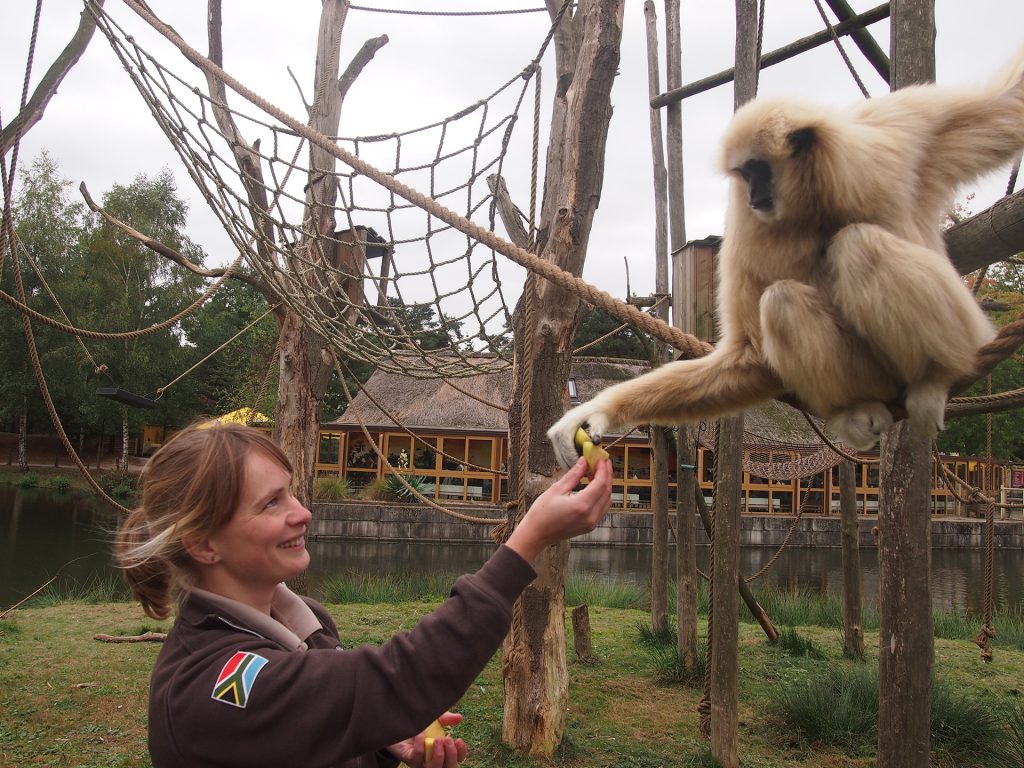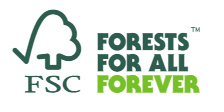Gibbons desperately need our help.
The three greatest threats to their survival are palm oil production, logging, and the illegal trade in wildlife.
Together, we can hit these industries where it hurts: their wallets. Stand with gibbons, and help us make the trade in wildlife, unsustainable palm oil and timber unprofitable.
If all of us make little changes, the results will be huge. By reading and sharing our tips, you can be part of the resistance!
EXPERT OPINION: WHAT CAN PEOPLE DO TO HELP GIBBONS?
Meredith: Educate themselves about habitat destruction and sustainable palm oil.
Judith: I wish that people will contribute to the conservation of gibbons… not only by donating money, but also by avoiding products with [unsustainable] palm oil, not keeping them as pets and spreading the word about gibbons.
Palm oil
Palm oil is found in everything from cookies to shampoo. It’s the main driver of deforestation in Indonesia and Malaysia, where producers destroy the habitat of endangered gibbons (and countless other threatened species) to grow their crop.
We don’t support a complete ban on palm oil. Instead, we strongly support efforts to make its production sustainable.
It’s a hugely important product. Demand isn’t going to go away, and many countries’ economies rely on it.
Because oil palms are the highest yielding oil seed crop, responsible oil palm cultivation is the most eco-friendly option; a total ban would just lead to even larger areas of land being used for alternative oil seed crops. Therefore, buying sustainable palm oil is the best solution.
As consumers, the power to change the production process rests in our hands.
By buying products from companies who have committed themselves to sustainable production, through certification and a no-deforestation policy, we will reduce the demand for palm oil from destructive suppliers.
Currently, the Roundtable on Sustainable Palm Oil (RSPO) is the best available certification scheme for consumers who want to make a sustainable choice. It’s endorsed by several of the biggest palm oil companies. Consequently, the amount of RSPO certified palm oil has increased by more than 300% since 2010, reaching an 11% share globally by 2014.
Unfortunately, the RSPO certification scheme is not yet perfect. Even though companies with RSPO certification are not allowed to cut down forest to make new plantations, they can still use already degraded forest for plantations; this is an area that needs to be improved in the certification scheme.
Find out more about the RSPO: https://www.rspo.org/about
Timber and paper
Logging is a huge threat to forests all over the world.
The best option is to reduce, re-use and recycle: tell your bank and utility suppliers you want to go paperless, and buy second-hand furniture and reclaimed timber wherever possible. Try to avoid printing things if you don’t need to. And what about lobbying your office building, school or local café to improve their recycling facilities?
When you do need to buy new products, remember that many companies don’t use responsible suppliers.
The FSC (Forest Stewardship Council) are the only organisation to guarantee that every company involved in the manufacture of a product uses wood from sustainable, well-managed sources, helping to conserve and protect forests, wildlife, and people. We strongly discourage the purchase of any new timber or paper products without an FSC certification.
Always check packaging for the FSC logo.
Responsible tourism
We support compassionate travel, and encourage everyone to make sure their actions on holiday don’t support animal suffering.
Animal cruelty can be a by-product of tourism. Animal circuses, zoos which exploit animals, bullfights and swimming with dolphins are all examples of exploitation in the name of entertainment.
Often, animals’ captors will seem to treat them kindly – but use your judgement, and if in doubt, err on the side of caution. Animals that seem docile may have been drugged; animals that seem well-trained may have been scared into obedience through violence.
Cute animals are especially at risk from the pet trade, and videos or photos of people holding them normalises this cruelty.
All wild animals belong in the wild: removing them from their natural habitat is abuse. Please be a conscientious and compassionate traveller.
For more information and advice please visit World Animal Protection and read TripAdvisor’s advice on live animal exhibits.
If you find someone holding a non-domestic animal, don’t take photos: it will have been taken from the wild. It’s easy to be drawn in by the chance of a close encounter. But by taking pictures with these photo prop animals, you are encouraging the trade in wildlife.
ZOOS
In an ideal world, where humans live harmoniously alongside other animals, with no impact on their habitat, behaviour or numbers, we believe zoos would have no place. However, the reality is that human impact on wildlife has been catastrophic – so we have a duty to intervene to correct the damage we’ve caused.
The SSA counts many zoos among its membership, and they’re crucial tools for our conservation work.
They allow us to breed animals to increase their overall numbers and ensure the gene pool doesn’t get too small; they allow us to study endangered species to improve veterinary knowledge, helping us to combat diseases and protect wild animals’ health and welfare; and they raise funds to help animals.
Crucially, they encourage more people to learn about animals. Education is key to conservation. If people don’t know about wildlife, they won’t learn – or care – about how to preserve it.
Some animals, captured when young or born in captivity, would die if we released them into the wild. Humans are responsible for this, so humans must give them the best life possible in captivity; and if some of these animals become ambassadors for their kind, they can prevent more wild animals from being captured.
Intervening in animals’ freedom is always a problematic choice. Yet without the conservation work zoos make possible, many threatened species would already have become extinct. It’s the lesser of two evils, and we believe that the work of zoos is necessary in our imperfect world.
We believe that if a naturally wild animal is in captivity purely for human gain – whether that’s financial gain (in a circus or photo trap) or emotional gain (being kept as pets) – it’s unethical. We only support responsible, well-managed, purposeful captive programmes which contribute to the conservation of wildlife.

Zoos are an important safeguard against extinction.
A good indicator of an ethical zoo is membership of the World Association of Zoos and Aquaria (WAZA) and/or their regional representatives – SEAZA in Southeast Asia, EAZA in Europe, AZA in the USA, or BIAZA in the UK. Check this list of their regional representatives to find the organisation that covers your home country, or your next holiday destination. (Please note there are some ethically run zoos and aquaria that aren’t affiliated with WAZA – always do your research!)

